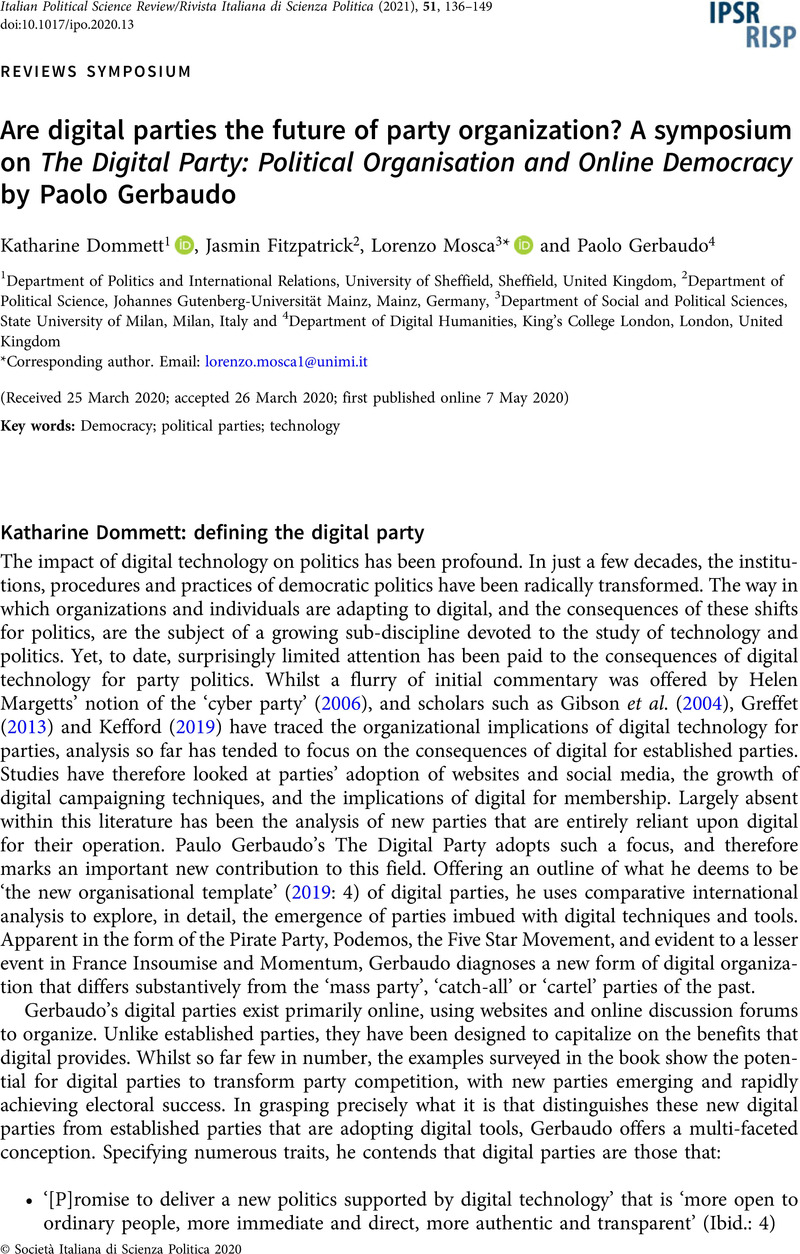Crossref Citations
This article has been cited by the following publications. This list is generated based on data provided by Crossref.
Fitzpatrick, Jasmin
2021.
Digital Parties.
p.
23.
Sijstermans, Judith
2021.
The Vlaams Belang: A Mass Party of the 21st Century.
Politics and Governance,
Vol. 9,
Issue. 4,
p.
275.
Correa, Patricia
Barberà, Oscar
Rodríguez-Teruel, Juan
and
Sandri, Giulia
2021.
Digital Parties.
p.
287.
Fitzpatrick, Jasmin
and
Selbach, René
2022.
Politische Akteure und Institutionen in Deutschland.
p.
69.
Bloquet, Claire
Borucki, Isabelle
and
Höhne, Benjamin
2022.
Digitalization in Candidate Selection. Support and Resistance Within Established Political Parties in Germany.
Frontiers in Political Science,
Vol. 4,
Issue. ,
Longo, Erik
2022.
Law and Artificial Intelligence.
Vol. 35,
Issue. ,
p.
169.
Greffet, Fabienne
2023.
Les partis politiques par temps de plateformes.
Réseaux,
Vol. N° 236,
Issue. 6,
p.
9.
Tronconi, Filippo
and
Bailo, Francesco
2025.
The other side of platform politics. Law‐making and online participatory democracy in the Five Star Movement.
Swiss Political Science Review,
Vol. 31,
Issue. 1,
p.
14.



